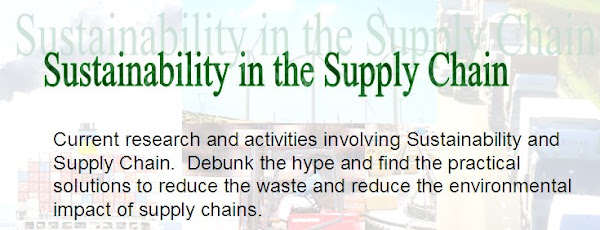Sustainability the big picture
Read a good article on Sustainability from Monitor Consulting. One of the key items was not to try to meet all aspects of sustainability. There is no consensus among the various NGOs and governments on what is sustainability. So, don’t try to be everything as a company. It would be very difficult to be the leader in CO2 reduction, water management, energy savings, endangered species, air pollution, shortest supply chain, waste reduction, and so on. You won’t be able to focus nor get a return (either in investment or “credit” from the consumer) if you do not have a focus and strategy. For example, Coke focuses on clean water as it is critical to be able to get water for their business. Or look beyond the boundaries of your business to find a Sustainability focus. Staples provides reverse logistics for NiCad batteries and ink cartridges. Other retailers are finding other options to promote a sustainability agenda (and also drive traffic to their stores). Another example from the article (which is more of happenstance) is Toyota’s sustainability success with the Prius. The environment impact is in the use of the product (reducing petroleum and CO2 emissions) rather than anything internal to the company.
I believe all companies should be working on starting to determine their carbon footprint using the Carbon Disclosure Project methodology (www.cdproject.net) and then focus on one area that can unit employees, the business and their customers. This needs to be a sustained commitment (5-10 years). A company should plan to have a pipeline of projects and initiatives that can lead to press releases and media exposure every 3-6 months (depending on size of the company). This should not be an expensive item (relative to the size of the business) but should return savings from cost reductions or government/utility incentives. I would not advocate spending money without a return for a company. I may personally spend more for to buy an organic product, I would not waste my employer’s money on an investment that only had a “sustainable” benefit and no reasonable ROI.
http://www.monitor.com/Expertise/BusinessIssues/OrganizationandLeadership/tabid/68/ctl/ArticleDetail/mid/699/CID/20082008133243971/CTID/1/Default.aspx
Friday, October 31, 2008
Subscribe to:
Post Comments (Atom)

No comments:
Post a Comment